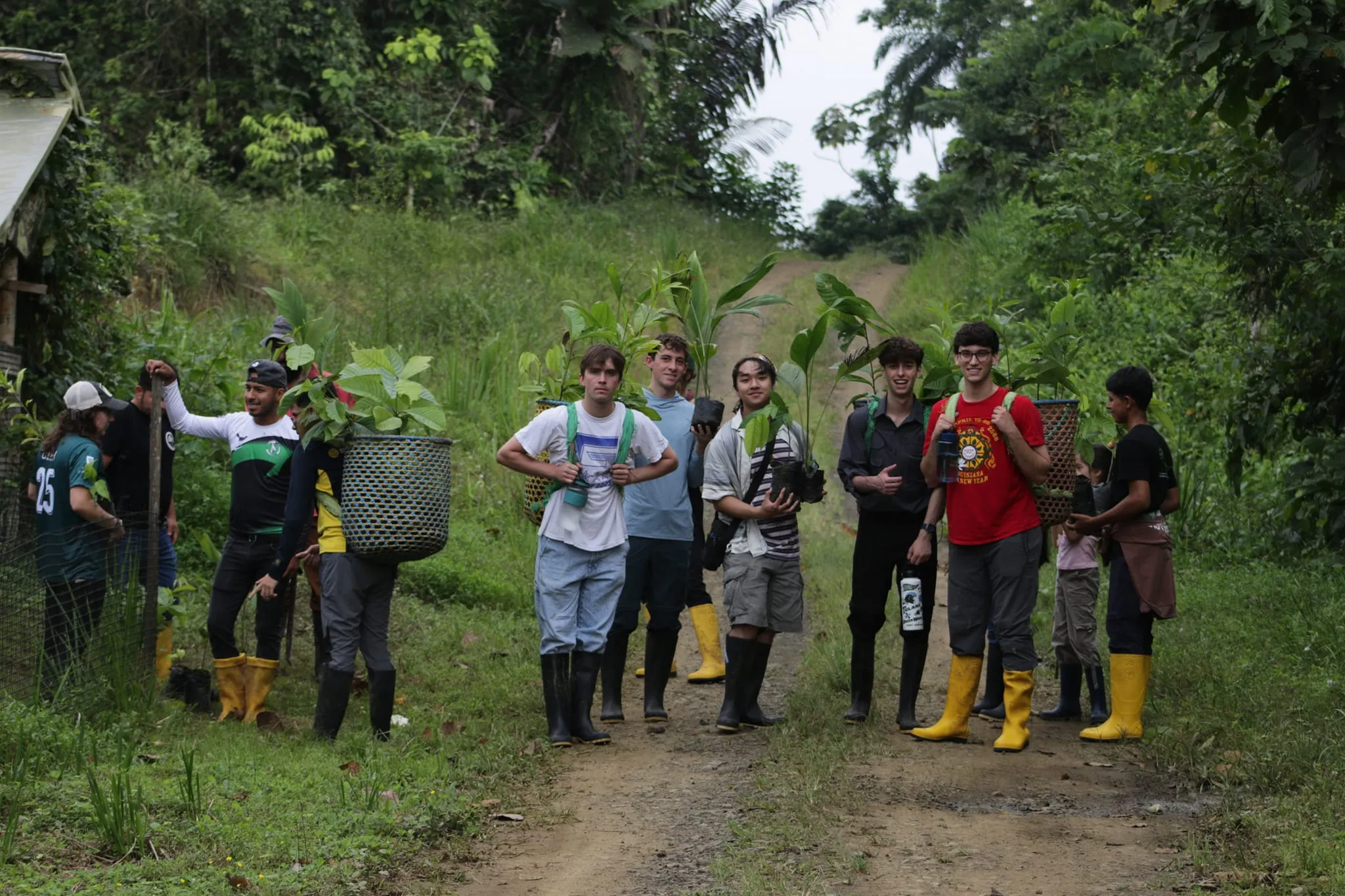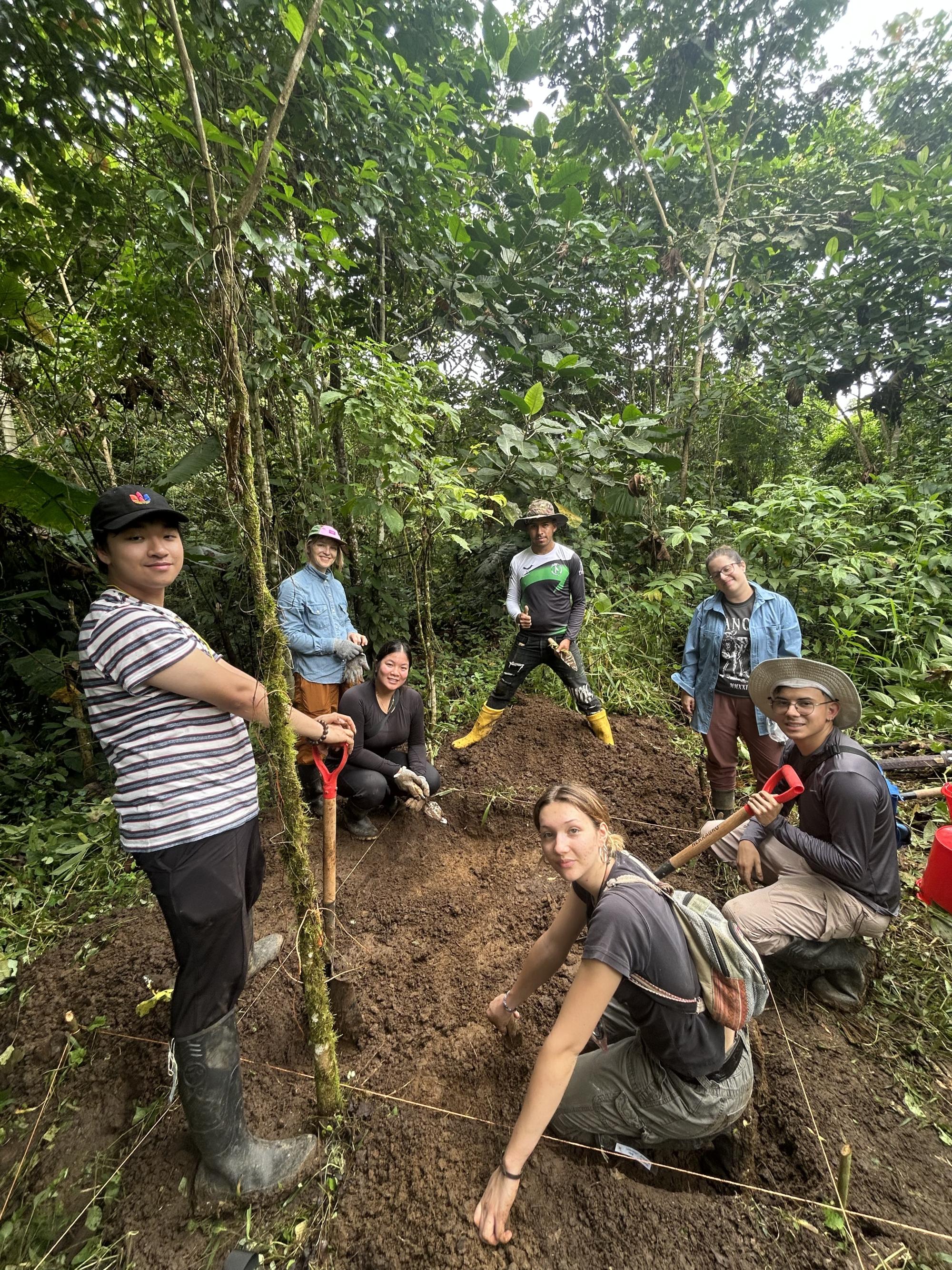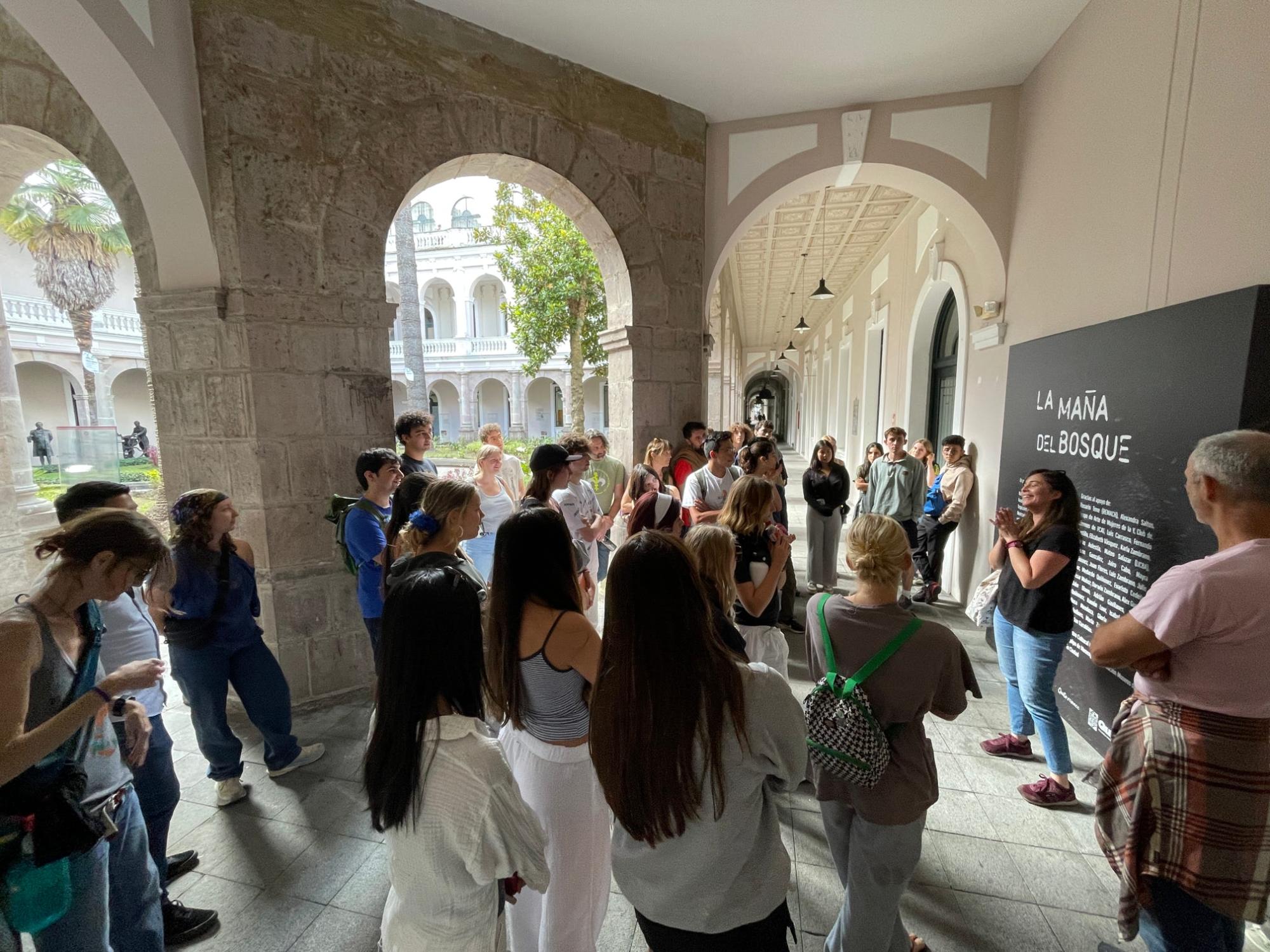
As a professor of anthropology in the School of Liberal Arts, I have had the opportunity to lead an ethnobotany team four times in Ecuador at the Fundación para la Conservación de los Andes Tropicales (FCAT). This study abroad program, part of the Tulane Interdisciplinary Environmental Research & Action Program (TIERA), offers students an opportunity to immerse themselves in a real-world, grassroots research and conservation program.
The first course of the 2025 summer session wrapped up in late June and exemplified the transformative, interdisciplinary, and innovative opportunities that set Tulane apart — it was also a summer of firsts. The course consistently draws students from all majors and backgrounds, but the addition of archeology and agroforestry projects makes it incredibly relevant to SLA students, including those majoring and minoring in Anthropology, Environmental Science, Classical Studies, and more.
"During my time in the TIERA Program in Ecuador’s Choco-Andes, I went from a science-averse Sociology and Political Economy student to an engaged researcher," said School of Liberal Arts student Crystal Ni. "The experience deepened my commitment to interdisciplinary, cross-cultural research and strengthened my belief in the power of liberal arts perspectives in addressing global environmental challenges."
I was excited to see the archaeology project come to fruition. FCAT researchers, staff members, and students often uncover shards or pottery fragments inadvertently through undertaking various activities at the station. Just last year, for example, my group found a ceramic whistle while on a nature hike. But there had never been a systematic investigation — until now. The archaeology and resilience team, led by Dr. María Ordoñez Alvarez (Universidad San Francisco de Quito), collected 396 ceramic artifacts in just three days of digging. Some of the pieces, which are linked to three distinct indigenous cultures known to have inhabited the region, could potentially date to 800 BC. Many of the pieces were of domestic or everyday use, but there were also some that were specialized for ritual purposes. One find included a humanoid foot that presumably belonged to a sculpture of a deity in its full form. This literally groundbreaking work undoubtedly paves the way for continued archaeological research at the station.
“Being immersed in conservation work, surrounded by individuals equally passionate about sustainability, gave me a renewed sense of purpose and direction,” said Environmental Studies and Finance student Shai Haim. “These connections were central to my growth, not just as a student or researcher, but as a person.”
Another “first” for the TIERA Program this year was the integration of Ecuadorian university students into the course. The two students, Franklin and Fernanda, melded seamlessly with their respective research teams and the group as a whole. It was a delight to see the cultural interchange that occurred among students, local FCAT researchers (nicknamed FCATeros), kitchen and station staff, and faculty. Although speaking Spanish is not a requirement for enrolling in the program, many undergraduates who participate are Spanish majors or minors or have taken coursework in the past and relish the chance to practice their skills. I recall one night when I heard a room of girls (the walls at the station are thin) gossiping in Spanish to include Fernanda in their musings. Although most students do not know one another upon arriving at the field station, over the course of just two short weeks, they create lasting friendships that continue long after the program’s completion.
 Clockwise: Justin Huynh, Professor Kelly Bond-Osorio, Jenny Nguyen, FCATero Alex Gualan, Professor Maria Ordonez Alvarez, Franklin Mayorga, and Brennwyn Montero dig into the past on-site at FCAT.
Clockwise: Justin Huynh, Professor Kelly Bond-Osorio, Jenny Nguyen, FCATero Alex Gualan, Professor Maria Ordonez Alvarez, Franklin Mayorga, and Brennwyn Montero dig into the past on-site at FCAT.That notion of exchange and outreach applies to the agroforestry potting and planting project as well. Agroforestry is the intentional planting of trees into agricultural systems to create environmental and social benefits. This exciting new initiative is expanding FCAT’s conservation mission beyond its borders and helping farmers diversify their crops and their income-earning capacities. Over a two-day period, we planted more than 100 trees in the home plots of two FCATeros. This project illustrates the benefits of prioritizing community wellbeing and how vital their participation is in tackling society’s biggest challenges, such as climate change. Not only was this an opportunity for students to give back to the host community, but it created a sense of social cohesion, cementing budding relationships and providing the foundation for new ones to emerge. We also invited members of FCAT’s Nueva Generación, the youth empowerment and education program, to join in on the action and the fun. It was such a treat to see them working side-by-side with the students, bonding over shared interests, like cars, movies, and food (and the environment, of course).
“At first, I was really nervous going into it, with not having a science background and not really knowing anyone... But I think those were both reasons that made this trip so much better,” said Finance major Jenny Nguyen.“I got to learn about a completely new topic, archaeology, and go all in. By fully committing to this research, getting my hands dirty, and showing genuine interest, I was able to learn about something different and gain new skills and knowledge. It made me think outside the box, apply previous skills along with adapting with new ones.”
The course drew to a close, and before we knew it, our bags were packed, and tearful goodbyes took place. But one more adventure awaited us in Quito, however. Back in the city, we boarded the metro to head into the historic district to visit the photography exhibit, La Maña del Bosque, at the Centro Cultural Metropolitano. The exhibit celebrates the interactions between people and the forest at the FCAT reserve and features the words and images (photographs and artwork) of those we had just left behind at the station. It was such a thrill to see their faces and hear their voices in a new setting, and see how the museum chose to highlight the work that FCAT is doing to conserve both forests and livelihoods.
“I want to remember the people I worked with, their dedication, warmth, and the sense of camaraderie we built together,” Haim continued. “I want to remember the physical work we did, the long days spent outdoors, and the hands-on nature of every task. I want to retain the ethnobotanical knowledge I accumulated through interviews and fieldwork, as well as the relationships I formed with FCAT staff and local community members.”
The June field course was full of many firsts, but I am certain, not lasts. I am anxiously awaiting the next adventure. Students and professors get a quick tutorial before entering the La Mana del Bosque exhibit in Quito on the final day of their trip.
Students and professors get a quick tutorial before entering the La Mana del Bosque exhibit in Quito on the final day of their trip.

